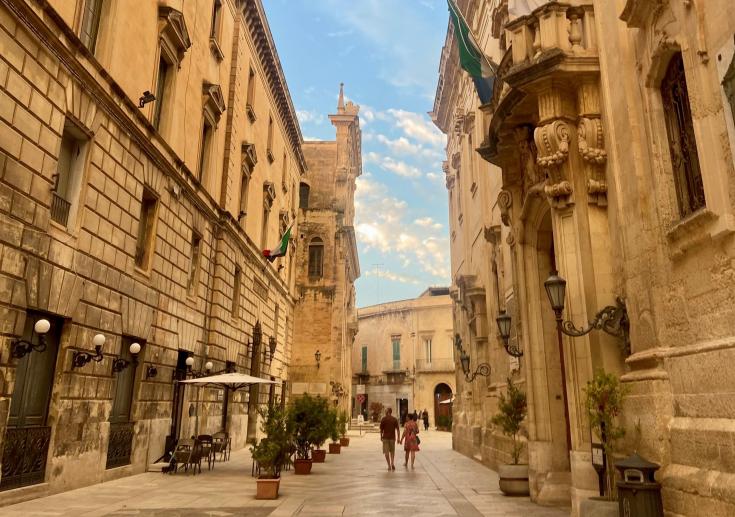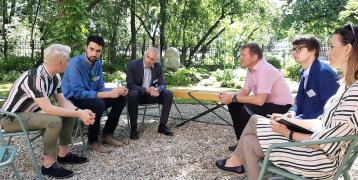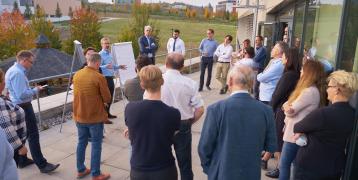Can green and social transitions in tourism go hand in hand?

Tourism is a cornerstone of Europe’s economy, accounting for a significant share of jobs and GDP across the continent. As part of EU’s efforts to move towards a greener future, tourism must undergo its own transformation—a green transition with substantial social implications.
Can Europe reconcile its environmental goals with the social realities of regions that depend on tourism for their livelihood? The answer lies not just in policy but in our ability to balance these transitions.
The European Union has recognised this challenge and laid out a framework to guide this shift. The Transition Pathways for Tourism, published by the European Commission in 2022, provides a roadmap for this transformation.
Similarly, the European Agenda for Tourism 2030 featuring in Conclusions of the Council of the European Union, sets ambitious targets for greening the industry while safeguarding its economic and social foundations. More recently, the Palma Declaration of October 2023 underscored the critical importance of putting the well-being of local residents in the heart of tourism development.
Managing social transition in employment
The policy challenge, however, remains complex. The green transition will require a fundamental rethinking of employment within a tourism sector that employs around 5% of the total EU workforce. Retraining programmes, upskilling initiatives, and support for small and medium-sized enterprises will be vital to help tourism companies, workers and regions navigate the shift towards greener jobs.
Regions that traditionally depend on mass tourism may find themselves at a disadvantage if they do not diversify. Coastal resorts that once thrived on budget airlines may see their fortunes fade if they cannot attract visitors who seek sustainable experiences.
By contrast, rural areas that develop ecotourism or adventure travel—activities with low environmental impact—could experience a boom. Interreg Europe projects like SYSTOUR and TIB are promoting a balanced approach to tourism by encouraging visitors to explore lesser-known rural areas, helping to ease pressure on overcrowded destinations.
The European Programme for Tourism 2030 outlines the need for inclusive growth, ensuring that all regions and communities benefit from the green transition. This is where the role of national and regional governments becomes critical. The ability to offer targeted support, invest in green infrastructure, and create a regulatory framework that incentivises sustainable business practices will determine how well regions manage this transition.
Creative tourism and ecotourism are examples of growth areas that could generate employment in everything from local crafts to sustainable accommodation and eco-friendly transportation. At the regional level, the Interreg Europe TOURBO project explores digital and green transition policies in the tourism sector that effectively support growth of SMEs.
A shared responsibility
The transition towards a greener tourism sector is not just a matter of policy, but a societal responsibility. Governments, businesses, workers, and tourists themselves must all play a role in reshaping the industry. While policy frameworks like the Transition Pathways and the Palma Declaration provide much-needed guidance, regional authorities and local communities will ultimately be the ones confronted to social impacts of these transitions on the ground.
We must not forget that this green transition represents more than just an environmental shift. It is a profound social transformation that affects livelihoods, regional economies, and cultural identities. Policymakers must ensure that the transition is just, supporting those who stand to lose while enabling others to seize the new opportunities that a sustainable tourism sector can offer.
In conclusion, the green and social transitions in tourism can indeed go hand in hand, but only if we recognise the interconnectedness of these changes. Tourism’s future is green, but it must also be fair. As Europe moves towards 2030, we have the chance to create a tourism sector that is not only environmentally sustainable but also socially inclusive.
To go further
You can also check:
About the author
By Erik Gloersen, Thematic Expert for a more Social Europe at Interreg Europe Policy Learning Platform.
Erik has more than 20 years of experience in regional development policies and holds a PhD in human geography and planning. His work has focused on sustainable development in areas with geographic specificities such as sparsely populated areas, mountain regions, cross-border regions and outermost regions.








